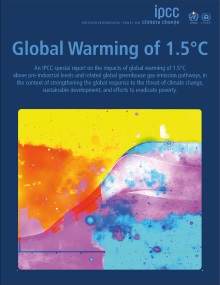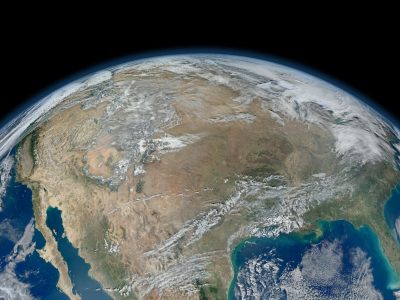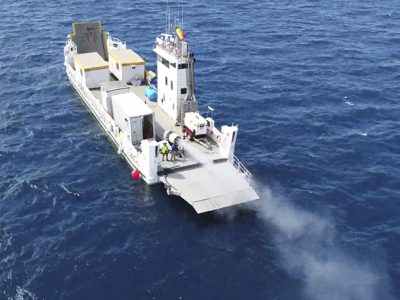Geoengineering
The IPCC Misses the Mark on Solar Geoengineering
The Intergovernmental Panel Climate Change poorly portrays the “institutional and social constraints to deployment related to governance”
Not long ago, I re-read the top-level messages from the Intergovernmental Panel Climate Change (IPCC) on solar geoengineering’s governance issues. The Summary for Policymakers of most recent broad report, Global Warming of 1.5°C (SR1.5), says, in full: Solar radiation modification (SRM) [i.e. solar geoengineering] measures are not included in any of the available assessed pathways. …
Continue reading “The IPCC Misses the Mark on Solar Geoengineering”
CONTINUE READINGGeoengineering: Ready for its Close-up?
After long being marginalized in climate debates, geoengineering is experiencing a surge in attention — which carries both opportunities and risks.
If you’re a long-time Legal Planet reader, you may have noticed that I weigh in once a year or so to say that geoengineering – active engineered response to global climate change – is going to get prominent, and intensely contentious, soon. Geoengineering? Before continuing, we need a brief aside about names. Even what to …
Continue reading “Geoengineering: Ready for its Close-up?”
CONTINUE READINGHow Climate Disruption May Undermine Climate Policy
The long-term harms from climate change over the next decades may undermine support for efforts to reduce emissions
Almost two straight months of wildfires and smoke in California are a tangible sign of the impacts of climate change on our lives and our world. This article from the New York Times a couple of weeks ago does a good job of laying out why the wildfires in California are only one example of …
Continue reading “How Climate Disruption May Undermine Climate Policy”
CONTINUE READINGTaking Technology Seriously in Global Environmental Politics
A special issue on new technologies is now available
I am proud to announce a special issue of Global Environmental Politics on new technologies, edited by Simon Nicholson of American University and me, is now available. We write in the introductory essay: Human beings are at once makers of and made by technology. The ability to wield tools was an essential ingredient in propelling an …
Continue reading “Taking Technology Seriously in Global Environmental Politics”
CONTINUE READINGTime to Get Serious about Climate Change and Oceans
Science can unlock powerful tools to fight climate change and ocean acidification, but only if we fund research and govern it well.
In the Before Time, I spoke with a few ocean scientists on climate issues, and I heard a common refrain. Climate change receives little attention or funding, considering the magnitude of the problem; climate impacts on oceans get even less; and marine carbon removal gets almost none at all. Humans are short-lived terrestrial creatures. …
Continue reading “Time to Get Serious about Climate Change and Oceans”
CONTINUE READINGUCLA Law Faculty Weigh In on Solar Geoengineering Experiment at Harvard
How to engage the public when everyone on Earth is a stakeholder?
It’s been a surprisingly busy year for solar geoengineering research. In late December, Congress appropriated $4 million to NOAA to study the influence of atmospheric aerosols on climate, with an eye on assessing “solar climate interventions.” In March, Australian scientists ran a trial of a cloud-seeding technology on the Great Barrier Reef that may …
Continue reading “UCLA Law Faculty Weigh In on Solar Geoengineering Experiment at Harvard”
CONTINUE READINGA New Report on Governing Climate Geoengineering
I suggest steps toward global governance of carbon dioxide removal and solar geoengineering
A new report on the governance of climate geoengineering — that is, carbon dioxide removal (CDR) and solar geoengineering (or solar radiation modification, SRM) — has been released. International Governance Issues on Climate Engineering: Information for Policymakers was coordinated and issued by the International Risk Governance Center, edited by IRGC’s Marie-Valentine Florin, and commissioned by the …
Continue reading “A New Report on Governing Climate Geoengineering”
CONTINUE READINGNonstate Actors Could Help Govern Solar Geoengineering
Governments are not acting; maybe others could — and should
Although reductions in greenhouse gas emissions continue to be inadequate to prevent dangerous climate change, solar geoengineering appears able to substantially reduce climate risks. More research, including outdoor experiments, is needed to reduce critical uncertainties. This could pose some environmental risks and — arguably more importantly — will raise diverse social concerns, such as research …
Continue reading “Nonstate Actors Could Help Govern Solar Geoengineering”
CONTINUE READINGA Solar Geoengineering Milestone Goes Largely Unnoticed
The first explicit, meaningful outdoor test garnered little attention in the news or from environmentalists
In response to insufficient cuts in greenhouse gas emission, some scientists and others are researching solar geoengineering. These techniques would reflect a small portion of incoming sunlight to cool the planet and counter climate change. A major step in solar geoengineering was recently taken, although you probably wouldn’t know it from reading the news or …
Continue reading “A Solar Geoengineering Milestone Goes Largely Unnoticed”
CONTINUE READINGNegative Emissions: The Next Bright Shiny Object in Greenhouse-Gas Emissions Reductions
In ongoing debate over how to slow and stop climate change, the past year or so has seen a large shift of attention and interest toward technological options to remove CO2 from the atmosphere after it is emitted – options generally lumped under the headings “Carbon dioxide removal” (CDR) or “negative emissions technologies” (NETs). These …
CONTINUE READING










